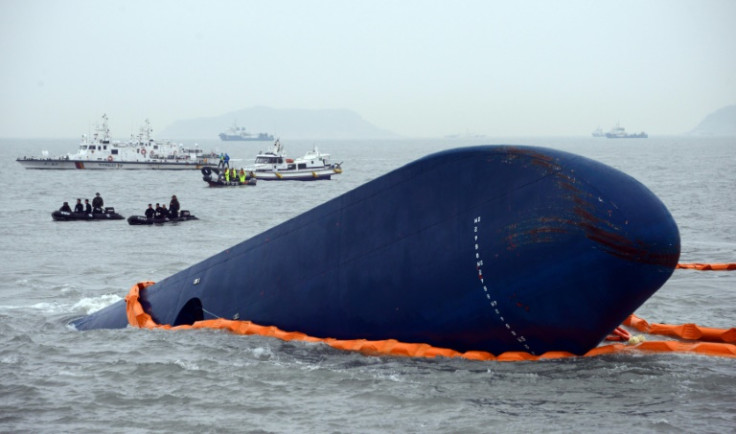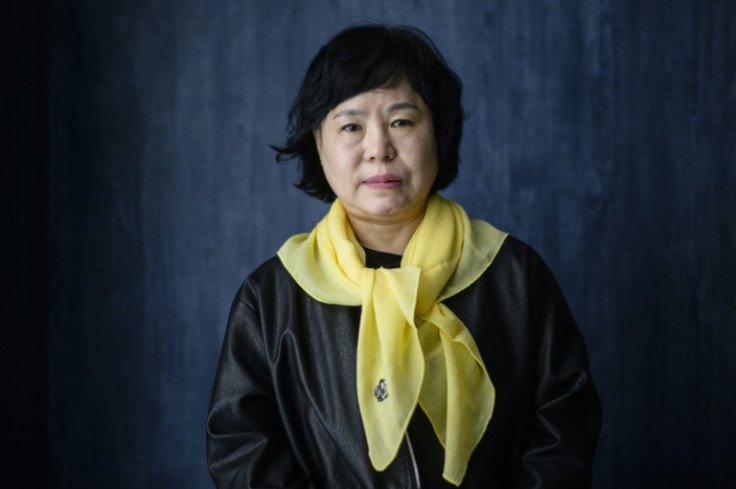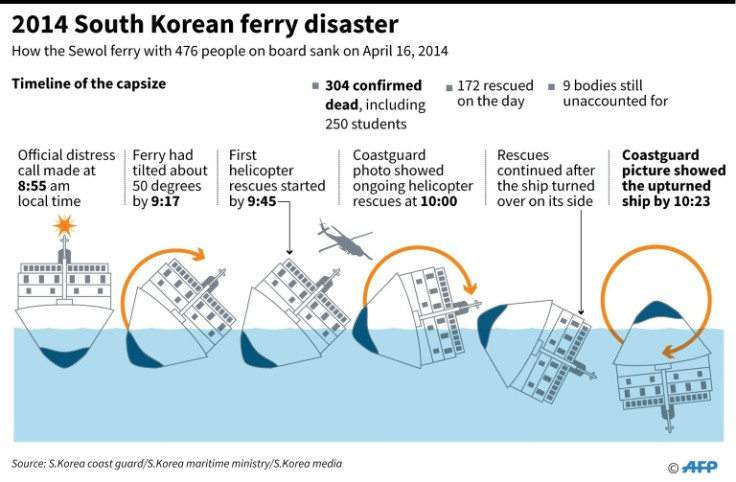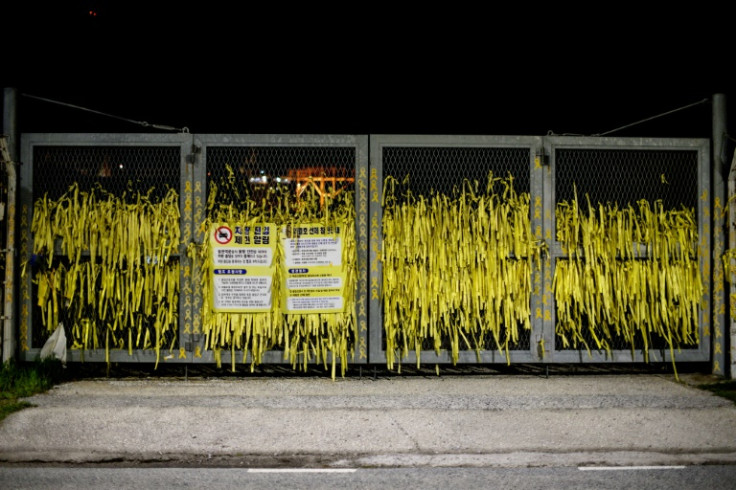
South Korea on Tuesday marked the 10th anniversary of the country's worst maritime disaster, when hundreds of schoolchildren died after the overloaded Sewol ferry capsized and sank.
The disaster and botched rescue efforts dealt a crushing blow to then-president Park Geun-hye, who was eventually impeached in 2017, and the tragedy remains divisive and politically sensitive in South Korea even now.
A Coast Guard vessel took some of the victims' families to the site of the sinking early Tuesday for a special ceremony.
At the site off South Korea's south coast -- marked by a yellow buoy -- the families called out the names of the deceased and threw flowers into the water, followed by a moment of silence.
"People say: 'It's been 10 years, bury it (in your memory)'" Park Jeong-hwa, whose daughter Cho Eun-jung was among the 304 people killed in the tragedy, said ahead of the anniversary.
"I thought I was going to be able to do it, thinking maybe after 10 years, the pain would fade a bit. But instead, it's even more painful now."
President Yoon Suk Yeol, whose party was dealt a crushing defeat in parliamentary elections last week, offered his condolences to the families of victims at a Tuesday cabinet meeting.
"Even though 10 years have passed, the events of April 16, 2014, remain vivid in my memory," he said.
"I pray for the repose of the unfortunate victims and once again extend my deepest condolences to the bereaved families."
In the afternoon, a memorial service was held in southern port city of Mokpo, where the wreckage of the Sewol, which was salvaged in a complex operation, is now on display.
"I wailed and cried while watching (the ship sink) on TV. The thought of all those young people falling into the water was and still is so heartbreaking and horrifying," Jung Chan-ae, who attended the memorial, told AFP.
"That feeling will remain the same even after 100 years, not just 10."
Jo Young-gyu, general secretary of the minor Justice Party's South Jeolla branch, said his "heart still aches when I think about" the tragedy a decade ago.
"Every year, every anniversary, I think there should be more emphasis on social responsibility for safety and life."
South Korea's rapid transformation from a war-torn country to Asia's fourth-largest economy and a global cultural powerhouse is a source of national pride.
But a series of preventable disasters -- from the Sewol ferry to the 2022 Itaewon Halloween crowd crush, which killed more than 150 mostly young people -- has shaken public confidence in authorities.
Last year, a 20-year-old marine died after he was swept away while doing relief work during major floods, with reports saying he had never been given a life jacket by the authorities.
Experts say that the current government's handling of the Itaewon disaster and the marine's death -- including the president's vetoing of a bill that would have allowed a special investigation into the Seoul crowd crush -- proved an electoral liability.
The daily schedule for Tuesday released by President Yoon's office did not list attending any of the Sewol memorial services being held throughout the day.
The decision sparked criticism from the public and political figures, with the minor Justice Party claiming that Yoon attending the memorial service would show the kind of "act of governmental renewal" which the public wished to see after the general elections.
Opposition leader Lee Jae-myung slammed what he described as government failures leading to loss of life.
"South Korea had to change after the Sewol ferry disaster. Unfortunately, a society of 'every man for himself' re-emerged, leading to the loss of precious lives in Itaewon... and the (late) marine," he said in a Facebook post on Tuesday.
Kim Ga-won, 18, who attended the Mokpo memorial, told AFP that the Sewol and Itaewon tragedies made it hard for her to trust South Korean authorities.
The two disasters "made (me) to realise the country doesn't prioritise citizens' safety and that I have to protect myself."










